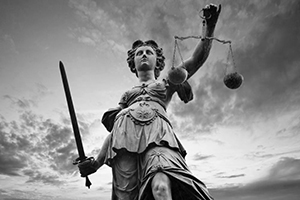What Are the Stages of a Personal Injury Case?

When seeking damages, the attorneys of McKinley, Conger, Jolley & Galarneau, LLP believe it’s beneficial to understand what to expect during the different stages of a personal injury case. If you live in Stockton, CA, Walnut Creek, CA, or the surrounding area and would like more information, we welcome you to schedule a consultation. In the meantime, let’s take a brief look at what you may expect during a personal injury case.
Meet with a Personal Injury Attorney
One of the first steps in a personal injury case is to meet with an attorney. A personal injury attorney can help build a strong case so that injured parties get the compensation they deserve for their injuries.
In order to build a case, it’s important to provide the attorney with as much information about the accident, injuries, and medical treatment as possible. In addition to the information provided, the attorney may begin the process of collecting medical records, bills, and other documentation.
File Court Documents
Legal proceedings in a personal injury case begin when court documents are filed by the plaintiff’s attorney. These documents include the:
- Complaint: The complaint is the first document filed in a personal injury lawsuit. The complaint generally identifies those involved and the legal claims and facts related to the claims. It also includes an explanation of the resolution the plaintiff is seeking from the court; most commonly this will be a judgment against the defendant for damages incurred in the accident.
- Summons: After the complaint is filed, a summons must be served to the defendant. The summons includes the complaint, informs the defendant that they are being sued, and tells them when to appear in court.
- Answer: The defendant must respond to the complaint and summons through something called an “answer.” The answer allows the defendant to address each issue brought up in the complaint. The defendant may make a counterclaim against the plaintiff in their answer. If a counterclaim is included, the plaintiff will be given an opportunity to respond before going to trial.
Discovery Phase
After the appropriate documents are filed in court, the discovery phase may begin. During the discovery phase, each side investigates the other’s legal claims and may send questions, called “interrogatories,” and request documents in an effort to collect evidence from one another.
The discovery phase is also when depositions occur. During a deposition, the parties involved, and sometimes witnesses, are asked questions by the other party’s attorney. Answers must be provided under oath.
Mediation and Negotiation
The next stage is negotiating a settlement. Generally, attorneys will attempt to negotiate a settlement before going to trial as trials can be time-consuming and expensive.
Negotiations may be done between both attorneys or through mediation. Mediation is a process that uses a third party mediator to work with both sides to try to resolve the personal injury case.
Trial
If both sides are not able to come to a settlement agreement through mediation, the next stage for the personal injury case is to move to trial.
Typically, a trial consists of opening statements, witness testimonies and cross-examination of the plaintiff and defendant. Closing statements are provided by both sides and a jury or judge will deliberate before reaching a verdict. If the judge or jury rule in favor of the plaintiff, a judgment will be placed against the defendant.
Collecting Damages
When a judgment is awarded, the defendant will be required to pay the amount of damages listed in the judgment. If damages are not voluntarily paid, further steps will need to be taken.
A post-judgment discovery may be performed to determine what sources of income or assets the defendant, who is now called the debtor, has. Depending on the debtor’s sources of income or assets, their wages may be garnished or a lien may be placed on their property.
Get Help with Your Personal Injury Case
If you live in or around Stockton and have been injured in an accident you believe was caused by someone else’s negligence, you may be able to recover compensation for your injuries and other damages through a personal injury case. To learn more about your options, call (209) 477-8171 to schedule a consultation with one of our personal injury attorneys.

